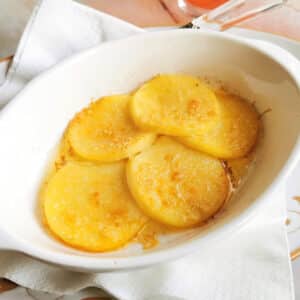Gnocchi alla Romana is a traditional type of baked semolina gnocchi from Rome. These roman-style gnocchi are absolutely divine and a must-try if you have never had them! Make them in one big dish for all the family to tuck into or serve them in individual portions for an elegant starter or side dish.
The first time I made gnocchi alla Romana, was actually the first time I had eaten them. However, it wasn’t the last! These baked semolina gnocchi have become a firm family favourite! I love traditional potato gnocchi, but they aren’t always very light.
In fact, many other gnocchi dishes are better eaten in the winter when we need and crave more substantial meals! Gnocchi alla Romana, on the other hand, can even be served as a starter. They are rich but light and a real melt in your mouth treat!
History
These semolina gnocchi are one of the most famous examples of pre-or non-potato gnocchi. They are very similar to the type of dumplings enjoyed in Ancient Rome, hence the name ‘alla Romana’ (Roman gnocchi).
Despite the fact that some people attribute the origin of these gnocchi to Piedmont because of the high butter content (which is not typical in Lazio cusine), they are a traditional dish in Rome and Lazio.
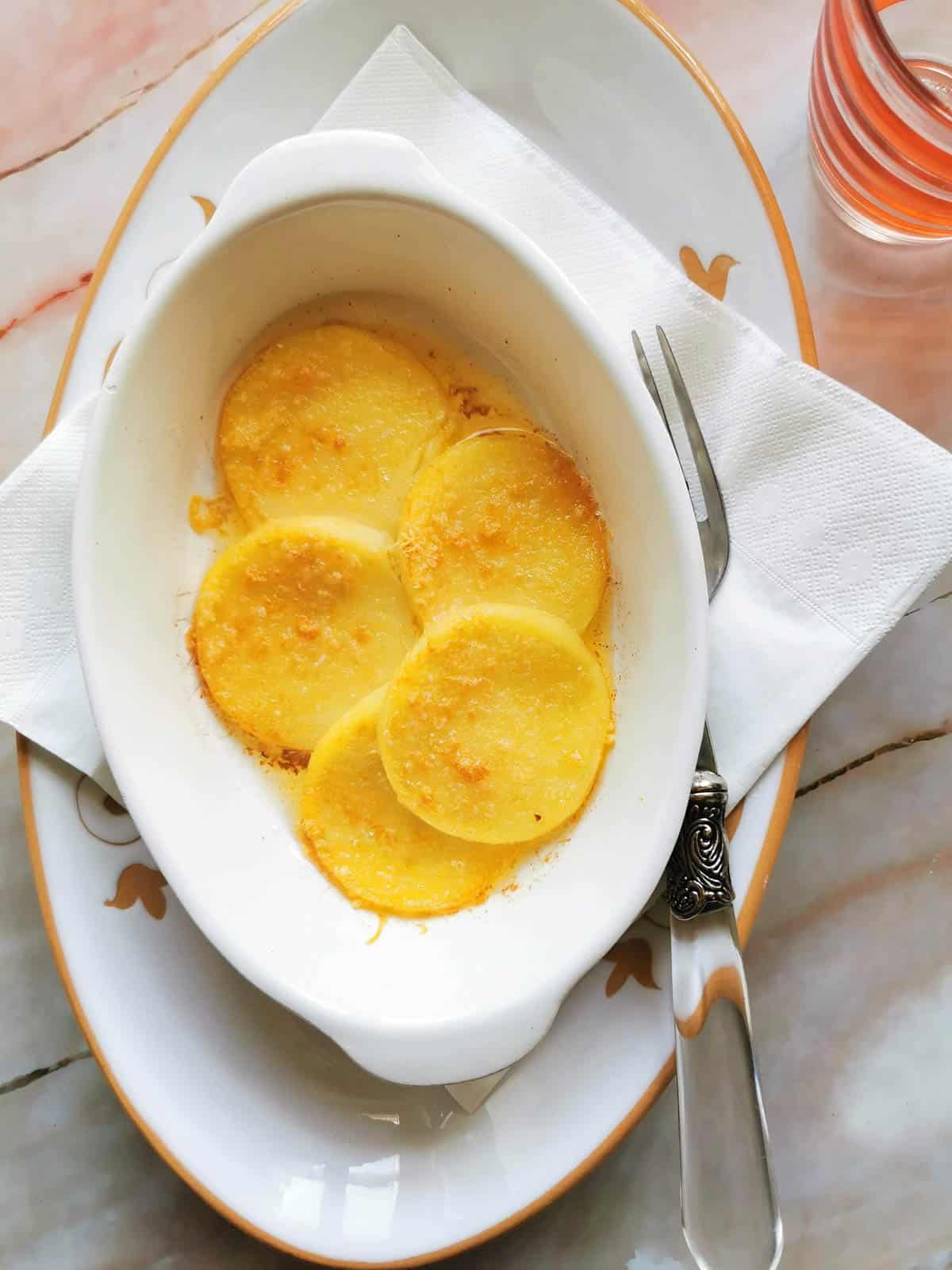

Alternative Ways to Serve Gnocchi alla Romana
The classic Roman recipe uses a simple butter and cheese dressing. However, these gnocchi alla Romana can be served in other ways; such as with a bechamel sauce, a mornay sauce, a four cheese sauce or a sauce mixed with ham, bacon, pancetta or vegetables.
They can also be served ‘alla Sorrentina’ which means baked with tomato sauce, mozzarella and basil. Plus, you can put some chopped greens or herbs, such as spinach, nettle, chicory, basil etc. into the dough.
Traditionally, gnocchi alla Romana are shaped in circles. But, the dough can also be cut into squares or other shapes! So, if you’re making these with the kids, you can have some fun and cut them in different shapes! Actually, even without kids, you can get creative with the shape!
Ingredients
- Milk: This is the liquid for your semolina dough. You can use any type of milk; if you want a richer gnocchi use whole milk.
- Semolina: Semolina (semolina flour in US and semolino in Italy) gives the gnocchi their distinctive texture and flavor. Make sure to use high-quality semolina for the best results.
- Butter: Butter adds richness to the dough and also helps in browning the gnocchi in the oven. This recipe uses unsalted butter; if you use salted, you can slightly reduce the addition of salt in the recipe.
- Egg yolks: Egg yolks help bind the ingredients together and adds richness to the gnocchi.
- Parmigiano Reggiano: Parmigiano Reggiano (parmesan cheese) lends a rich, nutty flavor to the gnocchi.
- Pecorino Romano: Pecorino Romano is a salty, hard cheese made from sheep’s milk. It adds a sharp, tangy flavor to the gnocchi. If you can’t find it, you can substitute with additional Parmigiano Reggiano. Both Pecorino and Parmigiano contain animal rennet. Vegetarians will need to use a vegetarian cheese.
- Salt: Salt enhances the flavors of the other ingredients.
- Nutmeg: Nutmeg adds a subtle warmth and depth to the gnocchi. Use freshly grated nutmeg if possible; it’s more flavorful than pre-ground.
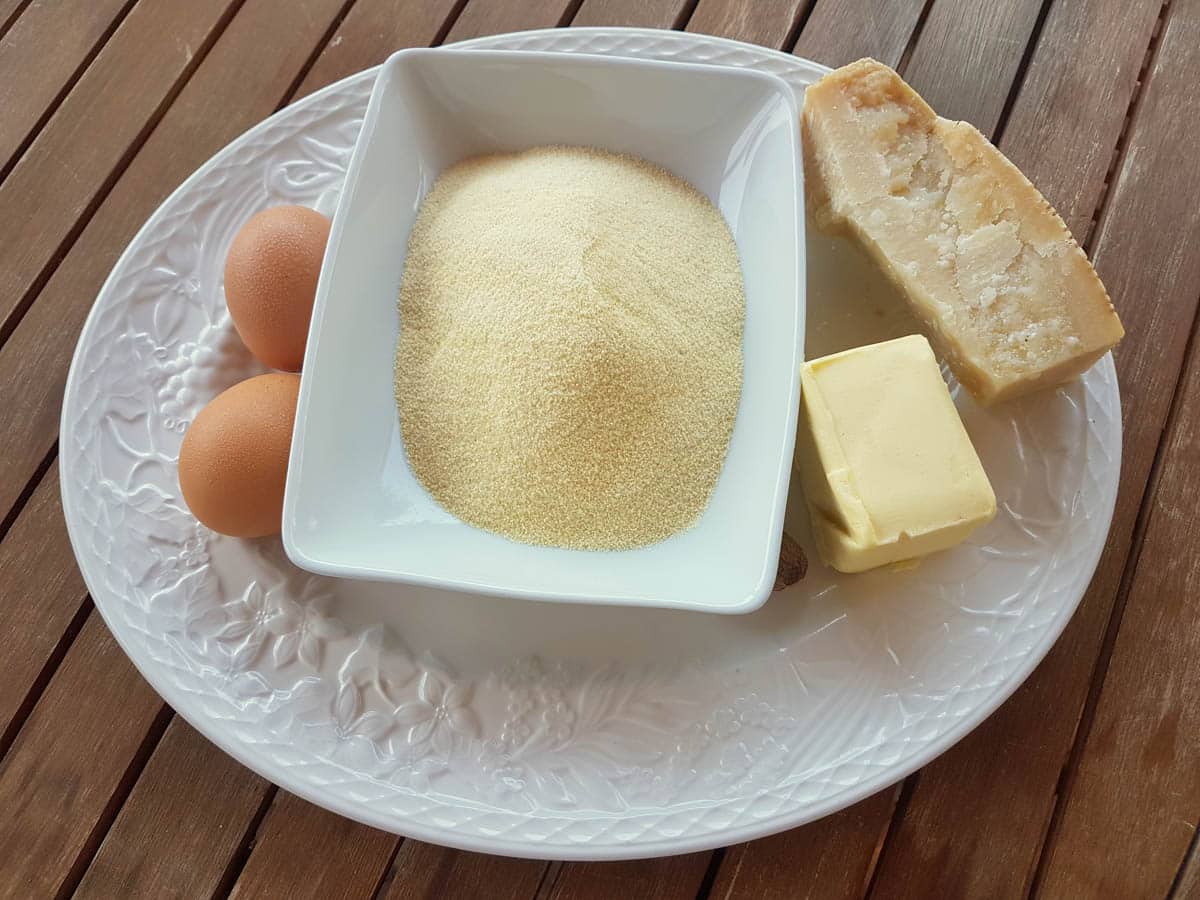

Expert Tips
Here are my top tips to get you one step closer to gnocchi perfection.
- Cutting Circles: Using a wet cutter when cutting out the semolina dough circles can help prevent sticking, making the process much smoother. If you don’t have a round cookie cutter, a glass of similar size will do the trick just as well.
- Stirring Vigorously: Once the semolina is added to the milk, it thickens rapidly. Switch from a whisk to a wooden spoon, and keep stirring vigorously to prevent lumps from forming.
- Make Ahead: Gnocchi alla Romana is a perfect make-ahead dish. If you have a busy day coming up, prepare the semolina dough a day ahead and refrigerate it overnight. You can then cut the semolina rounds and arrange the gnocchi when you’re ready, making the final steps a breeze.
Step by Step Instructions
1) Begin by pouring the milk into a large saucepan, adding half the butter (cut into pieces), a pinch of grated nutmeg, and a pinch of salt.
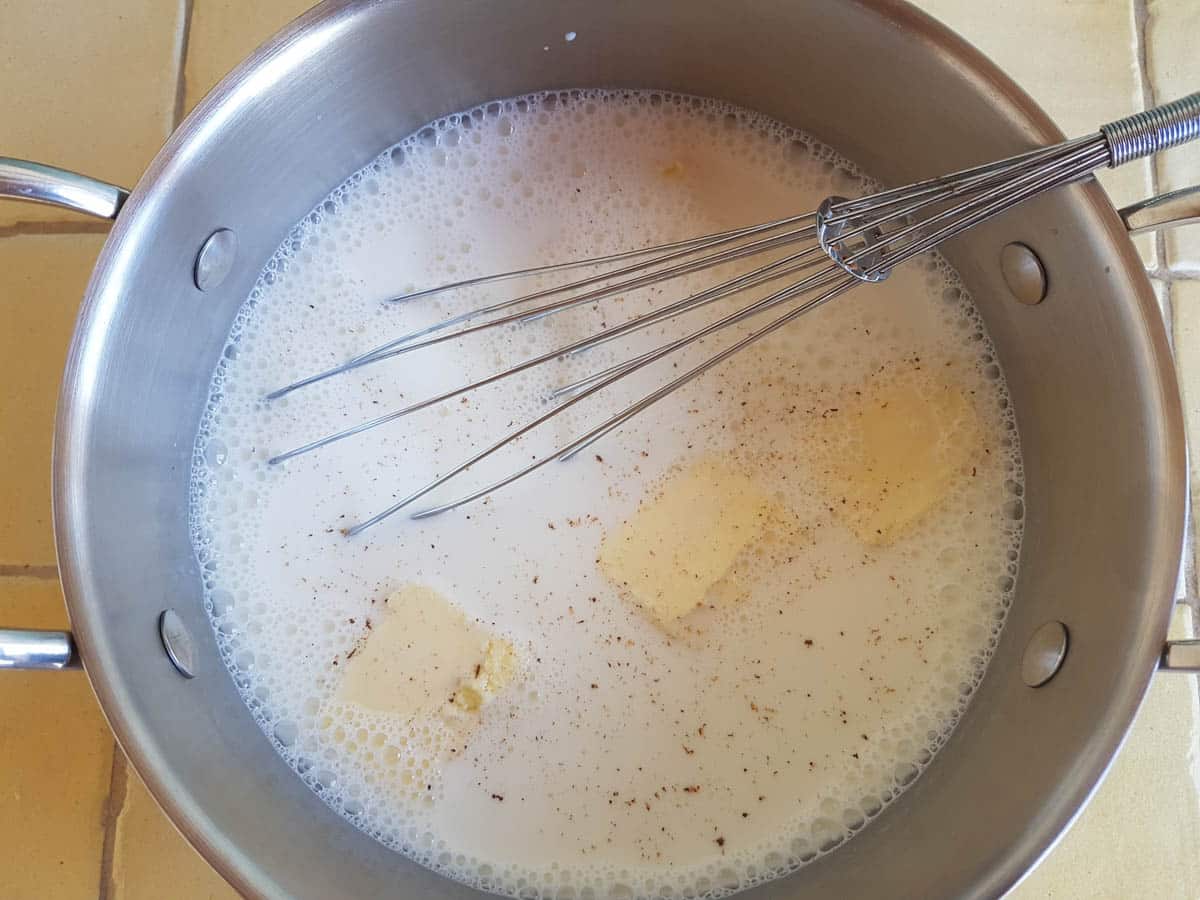

2) Bring the milk mixture to a simmer over a medium-high heat. Once the butter has melted, gradually add the semolina flour while whisking to prevent lumps from forming.
Note: Once you add the semolina the mixture will thicken quickily.
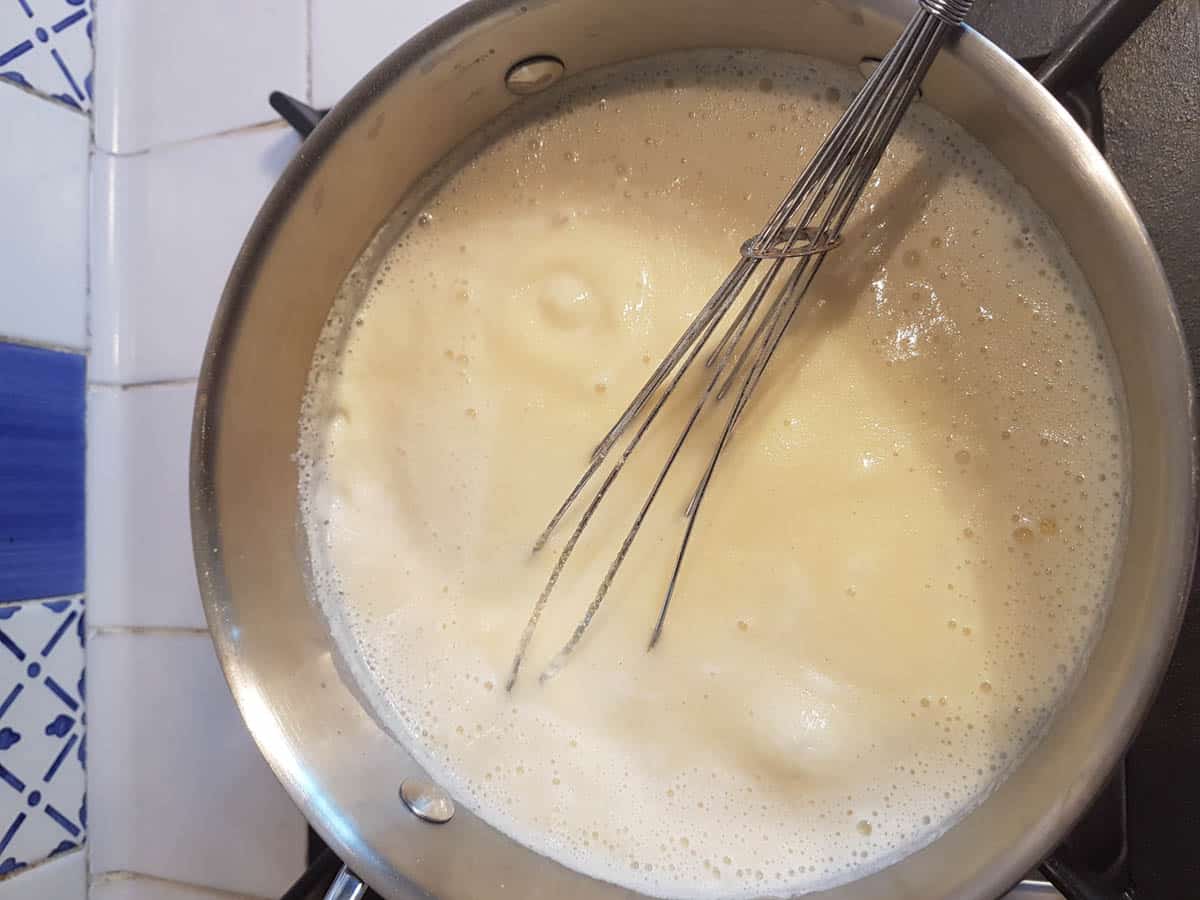

3) As the mixture thickens, lower the heat and switch to a wooden spoon and stir vigorously to prevent lumps forming.
4) Keep cooking the semolina until you have a very thick mixture which is quite stiff and elastic and begins to pull cleanly away from the sides of the pan (stirring all the time, of course)
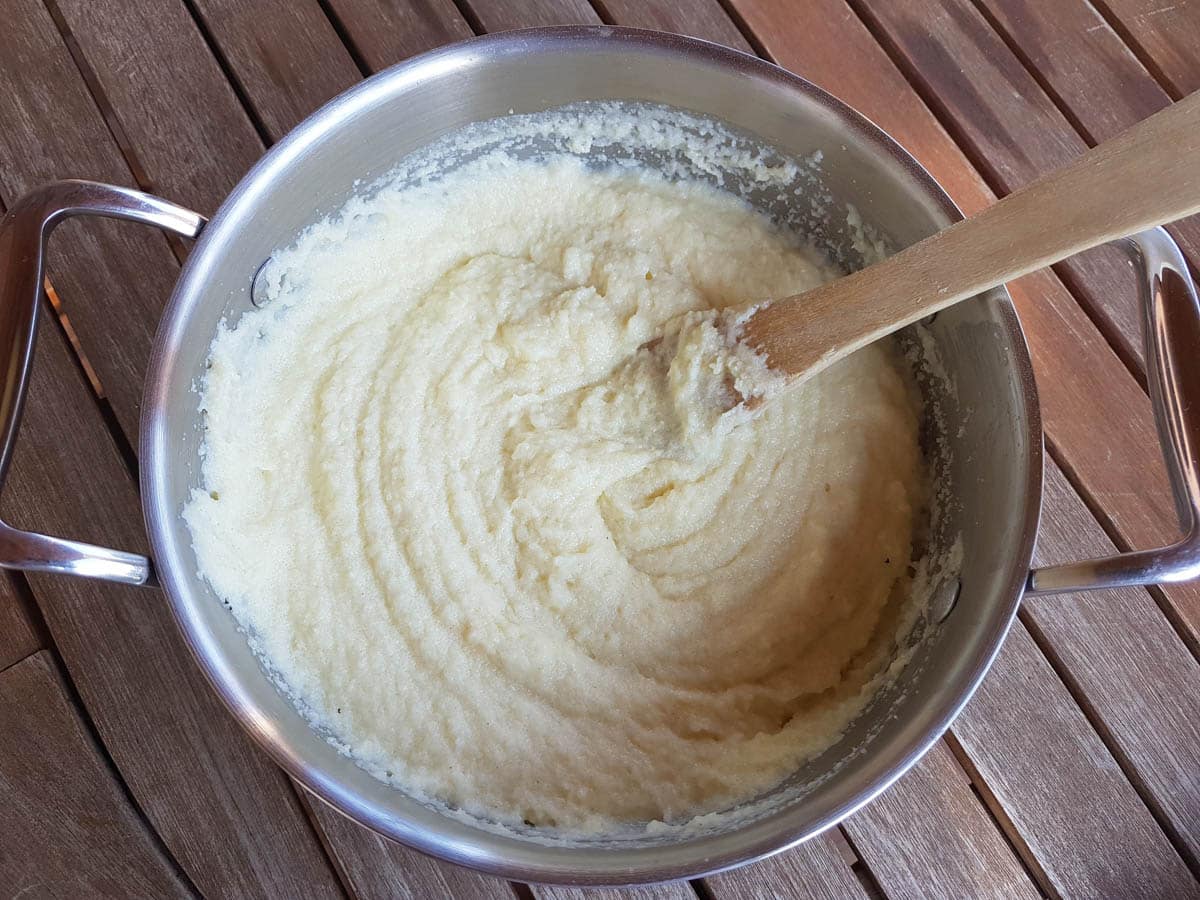

5) Remove the pan from the heat and mix in the egg yolk.
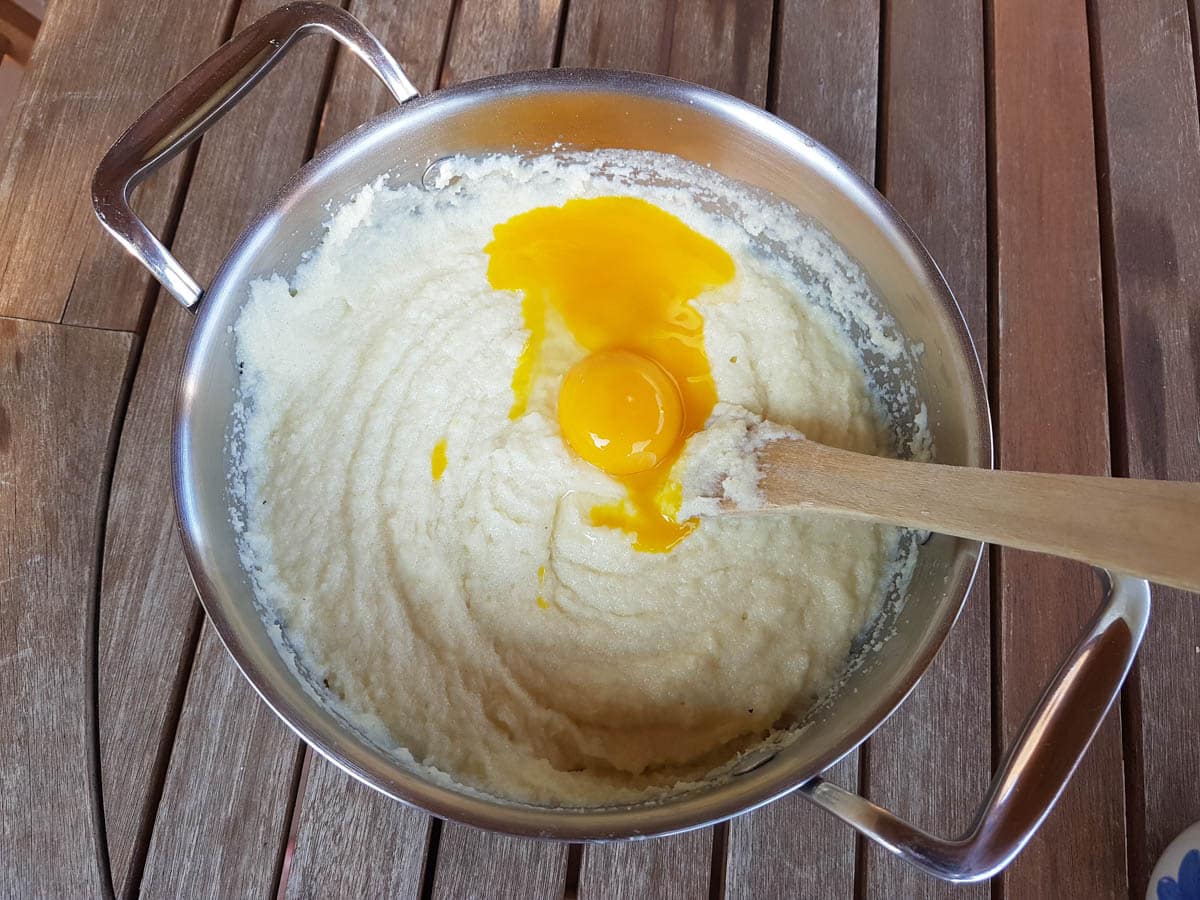

6) Once well combined mix in the Parmigiano Reggiano cheese.
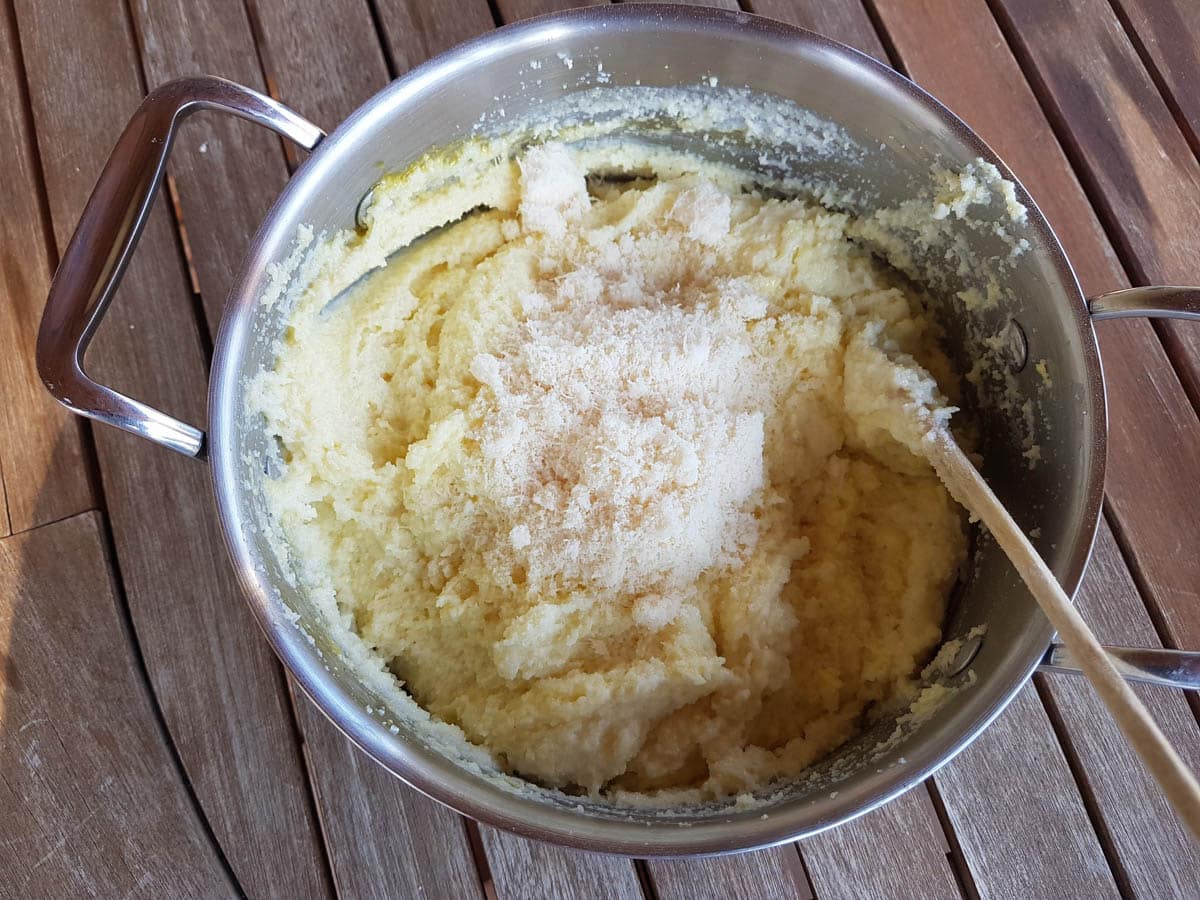

7) Spread the hot dough out in an even 1 cm thick single layer on a buttered or oiled baking sheet or large rectangular Pyrex dish.
Cook’s Tip: Wetting your hands or a rubber spatula with cold water can make this easier.
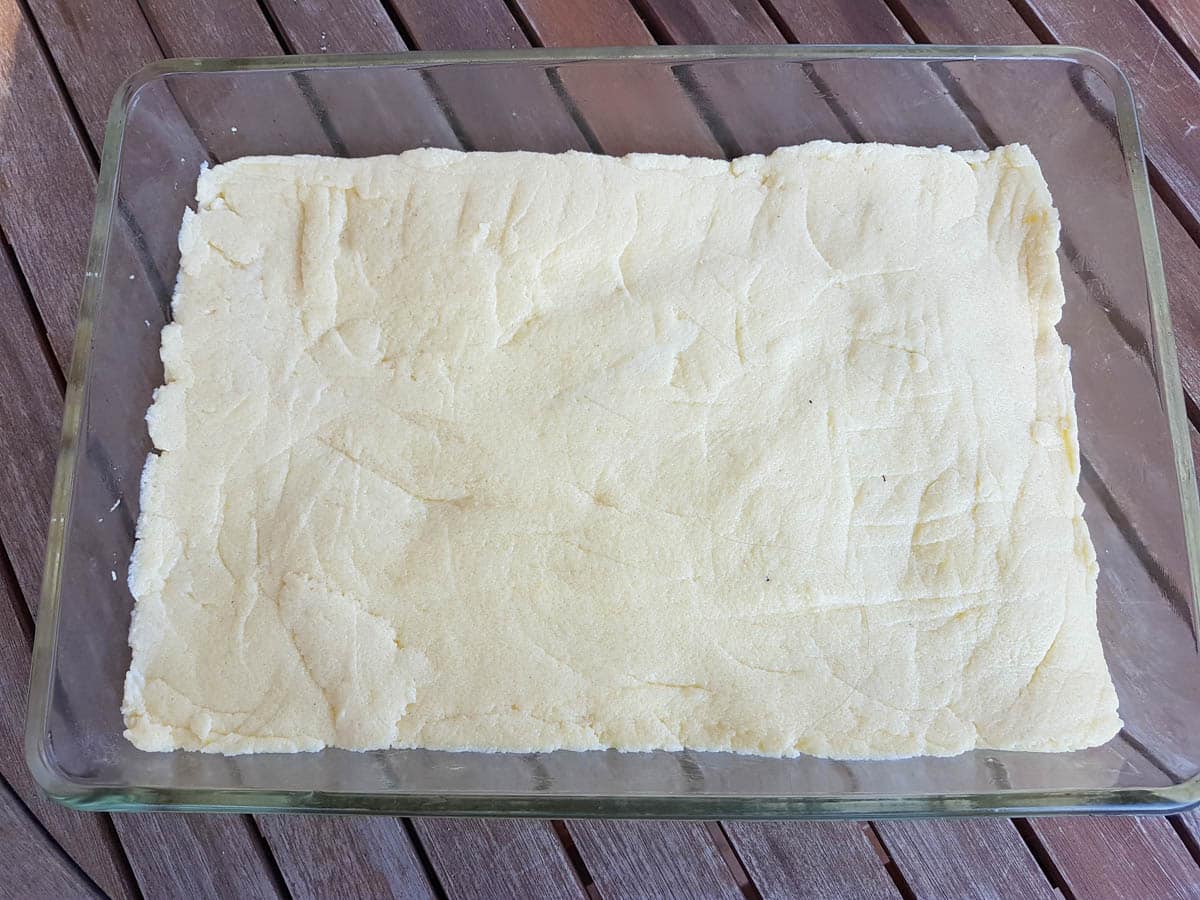

8) Allow the dough to cool at room temperature or in the refrigerator for about 30 to 40 minutes.
Note: Alternatively, you can prepare this a day ahead and refrigerate overnight.
9) Use a round 5-6cm cutter (or a glass or cookie cutter) to cut out circles of the semolina dough.
Tip: Slightly wet the tool with some water to prevent the dough from sticking.
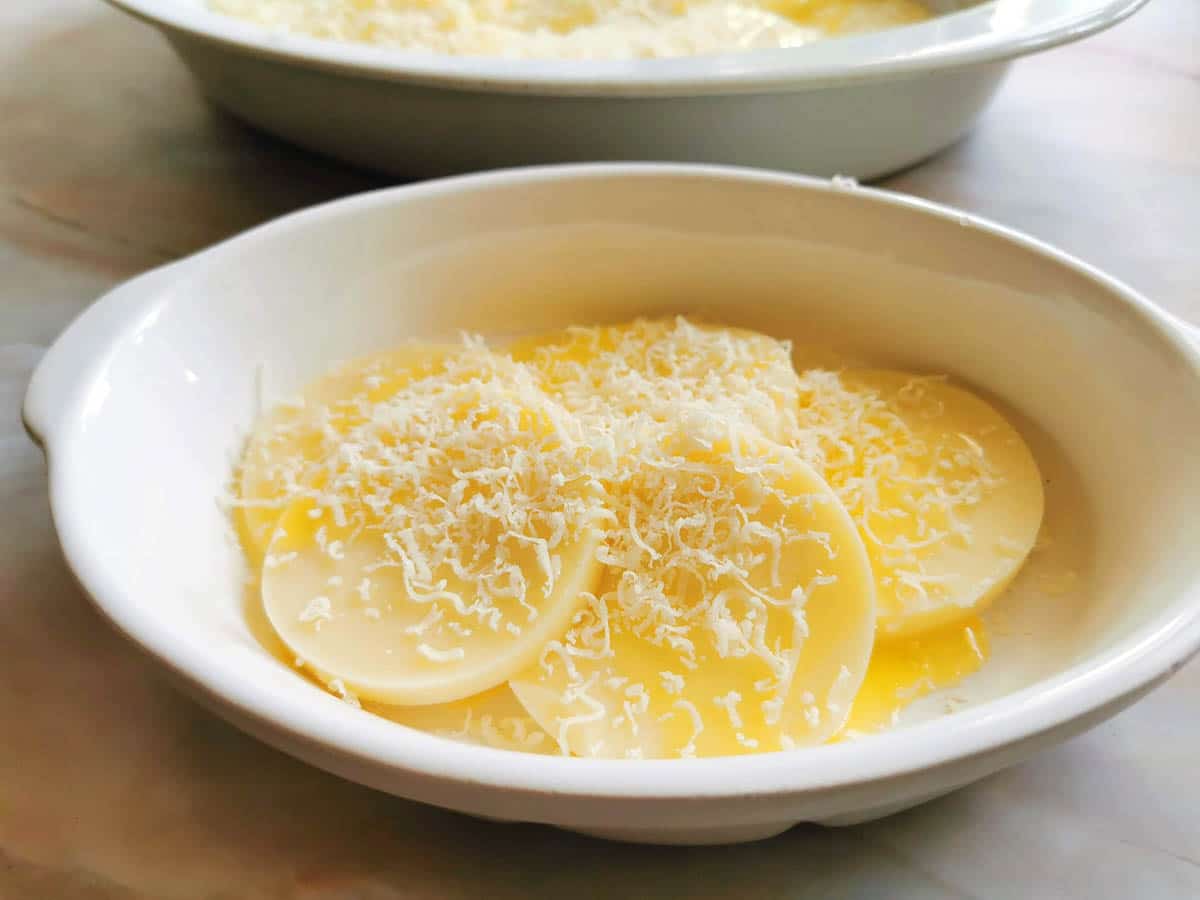

10) Arrange the semolina discs in slightly overlapping lines in a buttered or oiled baking or gratin dish.
11) Melt the rest of the butter in a saucepan. Let it cool slightly, then pour the melted butter over the semolina discs. Then, sprinkle over a generous amount of the grated Pecorino Romano cheese (or more Parmigiano Reggiano).
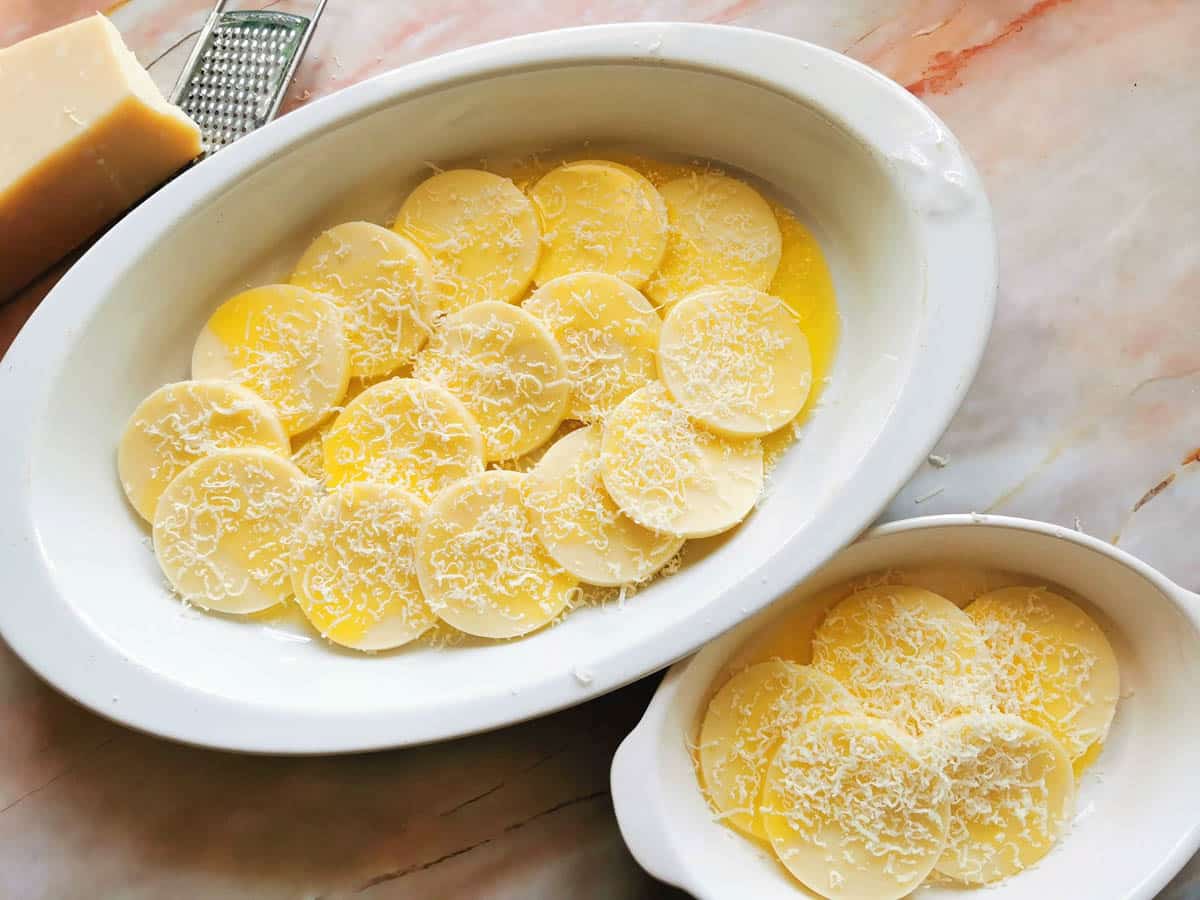

12) Bake in a preheated oven at 390°F (200°C) or under the grill until the gnocchi are golden brown.
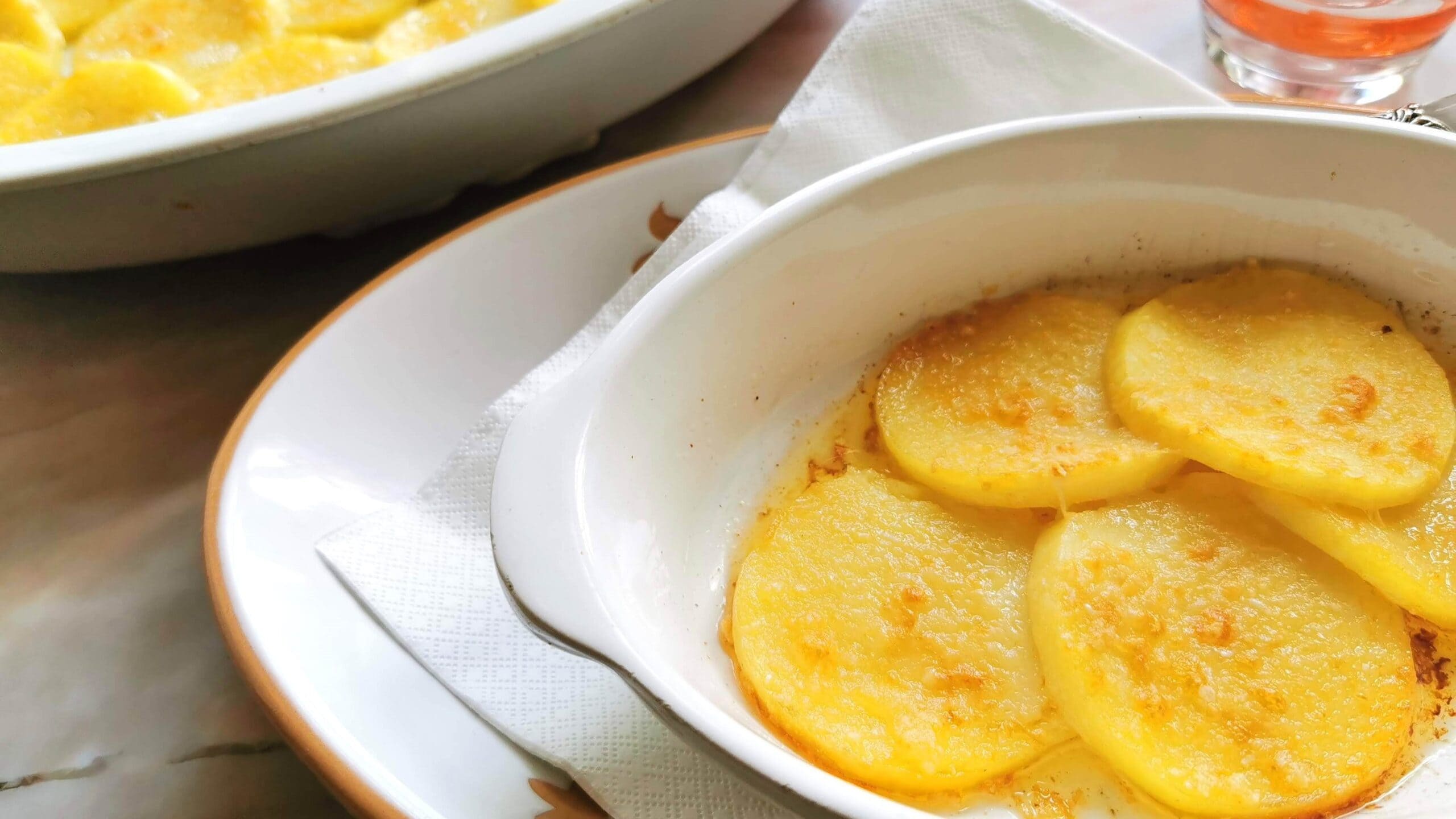

12) Let your semolina gnocchi rest for a few minutes, then serve in the baking dish.
Storage and Leftovers
This dish holds up well in the refrigerator and even the freezer.
- Refrigerator: Cool any leftover gnocchi alla Romana to room temperature. Once cooled, wrap the baking dish tightly with plastic wrap, or transfer the gnocchi to an airtight container. They will then stay fresh in the refrigerator for about 3-4 days.
- Reheating: When you’re ready to enjoy the leftovers, you can reheat them in a preheated oven at 350°F (180°C) until heated throughout. Alternatively, you can heat them in the microwave, though the oven method will maintain a better texture.
- Freezer: If you want to store the gnocchi for a longer period, they can be frozen. Just ensure that they are cooled and transferred to a suitable freezer-safe container or bag. Properly stored, these gnocchi can last up to 6 months in the freezer. To reheat, thaw them in the refrigerator overnight before following the oven reheating instructions.
Neither Italian Parmigiano Reggiano or Pecorino Romano are vegetarian because they are made with animal rennet. Replace with vegetarian cheese to make your gnocchi alla Romana vegetarian.
Semolina flour outside of Italy is very similar to semolino in Italy. It’s quite coarse and can also be used to make bread. Italian semola (rimacinata) is finely milled semolina flour, known as durum wheat flour in US. It’s used to make Italian flour and water pasta, including dried pasta.
Other classic recipes from Rome.
If you do try this gnocchi alla Romana recipe, I’d love to hear what you think. Please write a comment here on the blog or post a comment on the Pasta Project Facebook page.
Your feedback means a lot to me!
Buon Appetito!
Pin for Later:
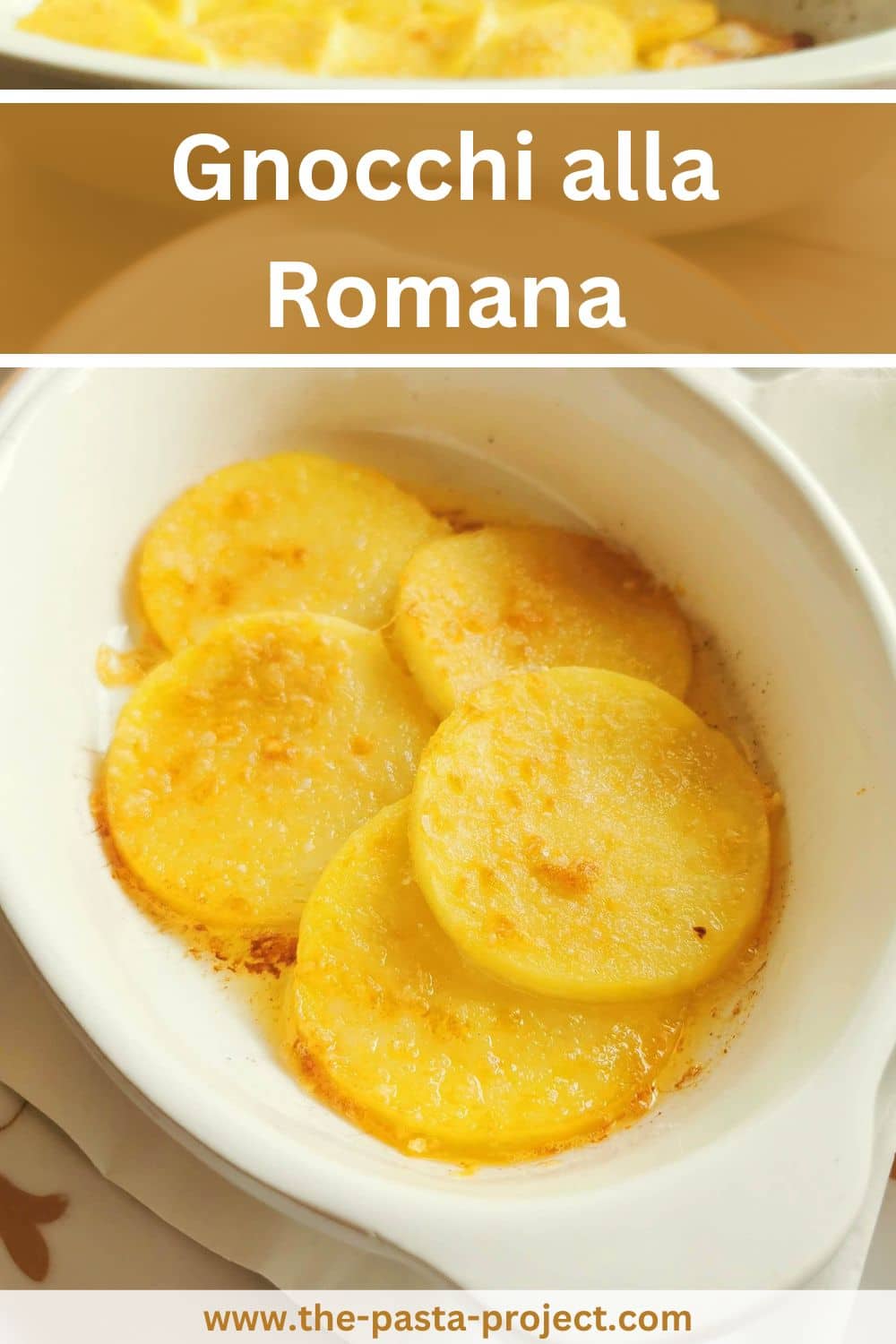

If you are interested in learning how to make homemade pasta and different types of gnocchi, check out my shop page for some great video online courses from my friends in Rome! Nothing beats learning to make pasta from Italians! Plus while you’re there why not order a copy of one of my pasta recipe cookbooks? They make great prezzies for pasta loving cooks.
More Homemade Pasta Recipes
Reader Interactions

